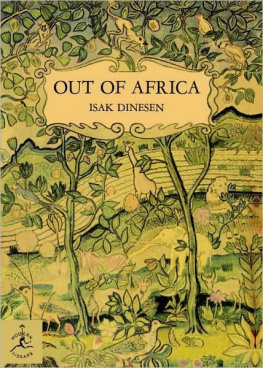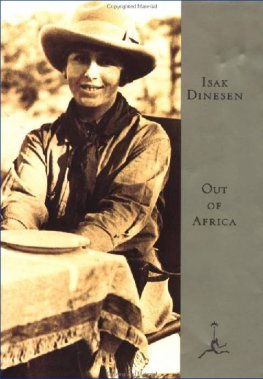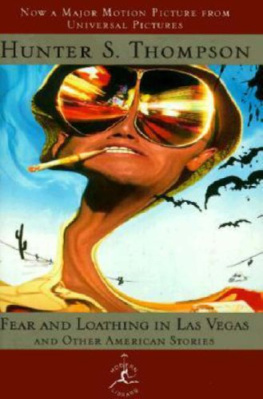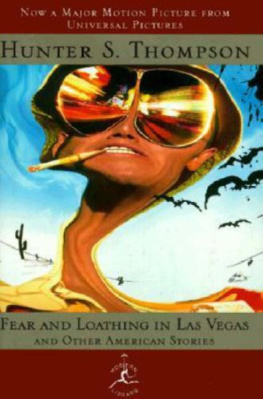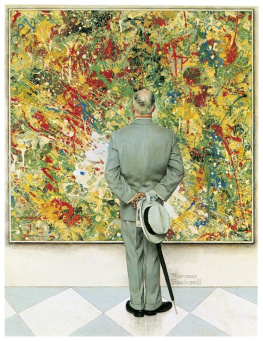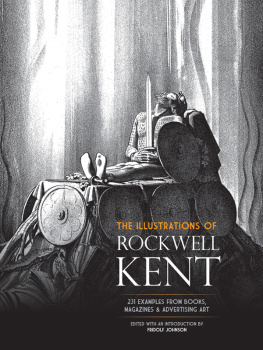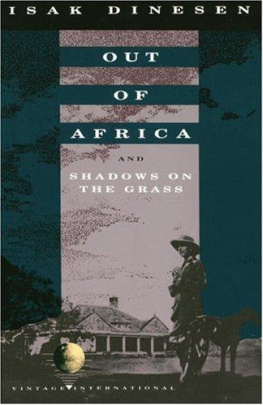Out Of Africa
by Isak Dinesen (1938)
(Version 1.0)
Table of Contents
BOOK ONE
KAMANTE AND LULU
From the Forests and Highlands we come, we come.
Chapter 1
THE NGONG FARM
I had a farm in Africa, at the foot of the Ngong Hills. The Equator runs across these highlands, a hundred miles to the North, and the farm lay at an altitude of over six thousand feet. In the daytime you felt that you had got high up, near to the sun, but the early mornings and evenings were limpid and restful, and the nights were cold.
The geographical position, and the height of the land combined to create a landscape that had not its like in all the world. There was no fat on it and no luxuriance anywhere; it was Africa distilled up through six thousand feet, like the strong and refined essence of a continent. The colours were dry and burnt, like the colours in pottery. The trees had a light delicate foliage, the structure of which was different from that of the trees in Europe; it did not grow in bows or cupolas, but in horizontal layers, and the formation gave to the tall solitary trees a likeness to the palms, or a heroic and romantic air like fullrigged ships with their sails clewed up, and to the edge of a wood a strange appearance as if the whole wood were faintly vibrating. Upon the grass of the great plains the crooked bare old thorn-trees were scattered, and the grass was spiced like thyme and bog-myrtle; in some places the scent was so strong, that it smarted in the nostrils. All the flowers that you found on the plains, or upon the creepers and liana in the native forest, were diminutive like flowers of the downs, only just in the beginning of the long rains a number of big, massive heavy-scented lilies sprang out on the plains. The views were immensely wide. Everything that you saw made for greatness and freedom, and unequalled nobility.
The chief feature of the landscape, and of your life in it, was the air. Looking back on a sojourn in the African highlands, you are struck by your feeling of having lived for a time up in the air. The sky was rarely more than pale blue or violet, with a profusion of mighty, weightless, ever-changing clouds towering up and sailing on it, but it has a blue vigour in it, and at a short distance it painted the ranges of hills and the woods a fresh deep blue. In the middle of the day the air was alive over the land, like a flame burning; it scintillated, waved and shone like running water, mirrored and doubled all objects, and created great Fata Morgana. Up in this high air you breathed easily, drawing in a vital assurance and lightness of heart. In the highlands you woke up in the morning and thought: Here I am, where I ought to be.
The Mountain of Ngong stretches in a long ridge from North to South, and is crowned with four noble peaks like immovable darker blue waves against the sky. It rises eight thousand feet above the Sea, and to the East two thousand feet above the surrounding country; but to the West the drop is deeper and more precipitous, the hills fall vertically down towards the Great Rift Valley.
The wind in the highlands blows steadily from the North-North-East. It is the same wind that, down at the coasts of Africa and Arabia, they name the Monsoon, the East Wind, which was King Solomon's favourite horse. Up here it is felt as just the resistance of the air, as the Earth throws herself forward into space. The wind runs straight against the Ngong Hills, and the slopes of the hills would be the ideal place for setting up a glider, that would be lifted upwards by the currents, over the mountain top. The clouds, which were travelling with the wind, struck the side of the hill and hung round it, or were caught on the summit and broke into rain. But those that took a higher course and sailed clear of the reef, dissolved to the West of it, over the burning desert of the Rift Valley. Many times I have from my house followed these mighty processions advancing, and have wondered to see their proud floating masses, as soon as they had got over the hills, vanish in the blue air and be gone.
The hills from the farm changed their character many times in the course of the day, and sometimes looked quite close, and at other times very far away. In the evening, when it was getting dark, it would first look, as you gazed at them, as if in the sky a thin silver line was drawn all along the silhouette of the dark mountain; then, as night fell, the four peaks seemed to be flattened and smoothened out, as if the mountain was stretching and spreading itself.
From the Ngong Hills you have a unique view, you see to the South the vast plains of the great game-country that stretches all the way to Kilimanjaro; to the East and North the park-like country of the foot-hills with the forest behind them, and the undulating land of the Kikuyu-Reserve, which extends to Mount Kenya a hundred miles away, a mosaic of little square maize-fields, banana-groves and grassland, with here and there the blue smoke from a native village, a small cluster of peaked mole-casts. But towards the West, deep down, lies the dry, moon-like landscape of the African low country. The brown desert is irregularly dotted with the little marks of the thornbushes, the winding riverbeds are drawn up with crooked dark-green trails; those are the woods of the mighty, wide-branching Mimosa-trees, with thorns like spikes; the cactus grows here, and here is the home of the Giraffe and the Rhino.
The hill-country itself, when you get into it, is tremendously big, picturesque and mysterious; varied with long valleys, thickets, green slopes and rocky crags. High up, under one of the peaks, there is even a bamboo-grove. There are springs and wells in the hills; I have camped up here by them.
In my day, the Buffalo, the Eland and the Rhino lived in the Ngong Hills, the very old Natives remembered a time when there were Elephants there, and I was always sorry that the whole Ngong Mountain was not enclosed in the Game Reserve. Only a small part of it was Game Reserve, and the beacon on the Southern peak marked the boundary of it. When the Colony prospers and Nairobi, the capital, grows into a big city, the Ngong Hills might have made a matchless game park for it. But during my last years in Africa many young Nairobi shop-people ran out into the hills on Sundays, on their motor-cycles, and shot at anything they saw, and I believe that the big game will have wandered away from the hills, through the thorn-thickets and the stony ground further South.
Up on the very ridge of the hills and on the four peaks themselves it was easy to walk; the grass was short as on a lawn, with the grey stone in places breaking through the sward. Along the ridge, up and down the peaks, like a gentle switchback, there ran a narrow game-path. One morning, at the time that I was camped in the hills, I came up here and walked along the path, and I found on it fresh tracks and dung of a herd of Eland. The big peaceful animals must have been up on the ridge at sunrise, walking in a long row, and you cannot imagine that they had come for any other reason than just to look, deep down on both sides, at the land below.
We grew coffee on my farm. The land was in itself a little too high for coffee, and it was hard work to keep it going; we were never rich on the farm. But a coffee-plantation is a thing that gets hold of you and does not let you go, and there is always something to do on it: you are generally just a little behind with your work.
In the wildness and irregularity of the country, a piece of land laid out and planted according to rule, looked very well. Later on, when I flew in Africa, and became familiar with the appearance of my farm from the air, I was filled with admiration for my coffee-plantation, that lay quite bright green in the grey-green land, and I realized how keenly the human mind yearns for geometrical figures. All the country round Nairobi, particularly to the North of the town, is laid out in a similar way, and here lives a people, who are constantly thinking and talking of planting, pruning or picking coffee, and who lie at night and meditate upon improvements to their coffee-factories.
Next page
